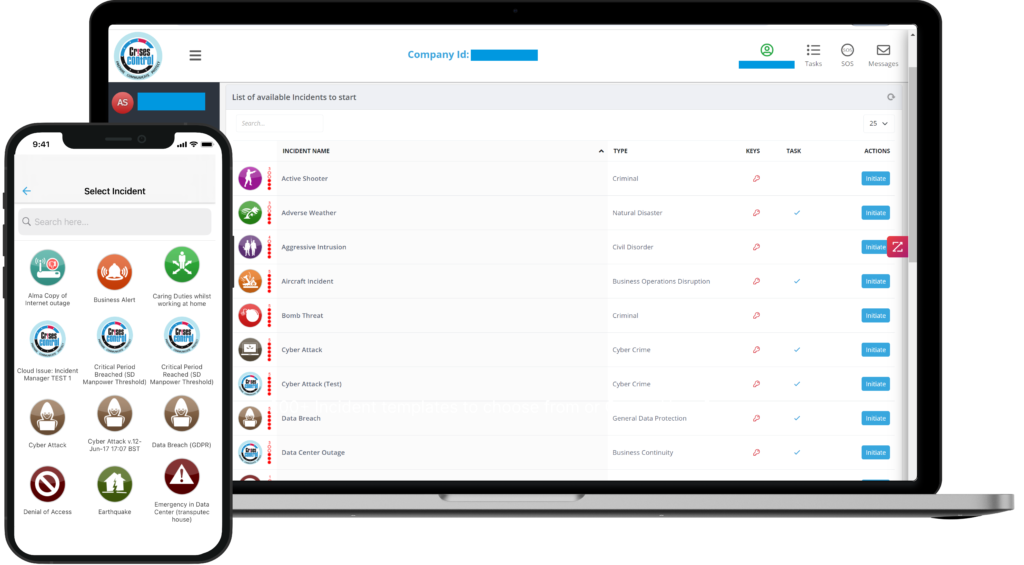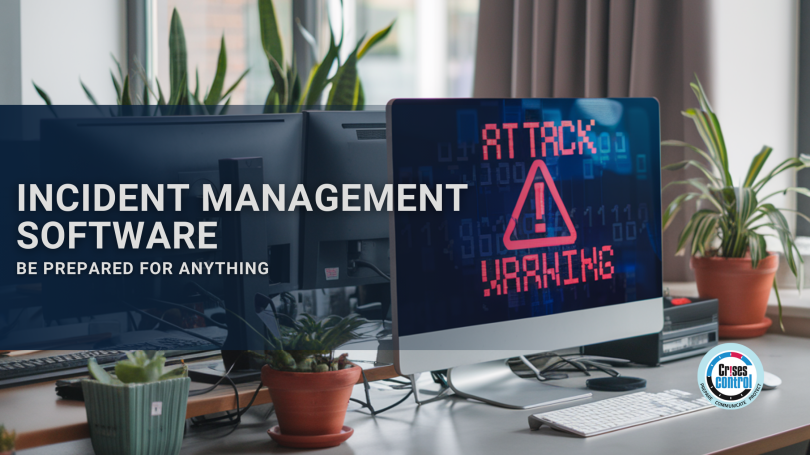Written by Anneri Fourie | Marketing Executive
Unexpected disruptions—be they floods, cyberattacks, or power outages—can bring business operations to a standstill. The real question isn’t just how quickly a business can recover, but how effectively it can continue operating during a crisis. That’s where Incident Management Software comes into play, shifting the focus from recovery to resilience.
In this blog, we’ll explore the role of incident management software in operational continuity, show how it supports employees, and demonstrate why businesses across industries are adopting tools like Crises Control to remain productive during disruptions.
Why Operational Continuity Should Be a Priority
Operational continuity means ensuring your business can keep running smoothly, even when facing challenges. For managers, it’s about:
- Minimising downtime.
- Protecting customer trust.
- Safeguarding revenue streams.
The stakes are high. Research from the Business Continuity Institute found that 39% of organisations experienced a significant operational disruption in the last year. Without a robust strategy, these incidents can lead to financial losses, damaged reputations, and employee frustration.
Simply having a plan isn’t enough. Operational continuity requires systems that enable seamless communication, efficient workflows, and rapid decision-making. This is where incident management software steps in, bridging gaps and ensuring your team can stay productive under pressure.
How Incident Management Software Ensures Continuity
Incident management software is more than just a crisis response tool—it’s a cornerstone of operational resilience. Here’s how it drives continuity during disruptions:
1. Real-Time Communication That Cuts Through Noise
Clear, instant communication is critical during a crisis. Incident management tools enable mass notifications, ensuring everyone in your organisation is on the same page.
For example, with Crises Control’s Ping Mass Notification System, alerts are sent in seconds, providing employees with actionable instructions. Whether it’s a data breach or a severe weather warning, real-time updates help reduce confusion and keep operations running smoothly.
2. Automation for Consistency and Efficiency
Relying on manual processes during a crisis can lead to bottlenecks and errors. Incident management software automates key workflows, such as:
- Assigning tasks to the right people.
- Tracking the status of ongoing actions.
- Sending reminders for critical updates.
By streamlining these tasks, businesses can respond faster and more effectively. Automation also ensures consistency, reducing the risk of human error during high-pressure situations.
3. Accessible, Pre-Defined Incident Plans
When a disruption occurs, time is of the essence. Having pre-defined incident response plans readily available ensures that employees know exactly what to do.
Crises Control’s Incident Plan Builder allows organisations to store detailed step-by-step guides in the cloud. These plans can be accessed instantly, whether you’re at the office or working remotely. This accessibility eliminates delays caused by searching for documents and ensures that everyone stays focused.
4. Insights That Drive Improvement
A crisis offers a valuable opportunity to learn. Incident management software generates detailed post-incident reports, highlighting what worked well and where improvements are needed.
Crises Control provides advanced reporting tools, enabling businesses to analyse performance metrics, refine processes, and strengthen their resilience against future incidents.
5. Flexibility Through Cloud-Based Access
Modern workplaces demand flexibility. Whether your team is on-site, remote, or dispersed globally, cloud-based incident management software ensures uninterrupted access to critical systems and information.
Crises Control’s private cloud infrastructure guarantees availability, even if external platforms fail. With global cloud locations in the UK, the Middle East (GCC Countries), Europe and North America, Crises Control ensures localised data hosting and compliance with regional regulations. This robust infrastructure keeps your business operational under any circumstances while offering flexibility and resilience tailored to your organisation’s needs.

Interested in our Incident Management Software?
Customise your Crisis Incident Management Software to meet your specific needs with our flexible tools & stay connected and informed during the crisis and incident management process
How Crises Control Empowers Operational Continuity
Crises Control is at the forefront of incident management, offering a comprehensive suite of features designed to address the complexities of modern business continuity.
Key Features That Set Crises Control Apart
- Ping Mass Notification System: Deliver instant, targeted alerts to your entire team.
- Task Manager: Break down complex operations into manageable steps, ensuring clarity and accountability.
- Incident Plan Builder: Create and share response plans that are easy to follow during high-stress situations.
- Comprehensive Reporting Tools: Gain actionable insights to improve future responses.
- Easy Integration: Crises Control integrates with your existing tools for a seamless transition.
Supporting Your Greatest Asset: Your Employees
Operational continuity isn’t just about processes—it’s about people. Employees are at the heart of any organisation, and incident management software helps them perform at their best, even under pressure.
How Incident Management Software Benefits Employees
- Reduced Stress: Clear instructions and accessible resources alleviate uncertainty, allowing employees to focus on their tasks.
- Improved Productivity: Automated workflows eliminate delays, keeping everyone aligned.
- Enhanced Confidence: Knowing the organisation is prepared for disruptions fosters trust and morale.
For example, during a system outage, employees equipped with real-time updates and guidance can prioritise tasks effectively, ensuring minimal disruption to operations.
Conclusion: Build Resilience with Crises Control
Operational continuity is about more than just surviving disruptions—it’s about thriving despite them. With Crises Control’s Incident Management Software, your business can ensure seamless operations, empower employees, and maintain customer trust, no matter the challenge.
Take the first step towards a resilient future. Contact us today for a free personalised demo!
Request a FREE Demo

